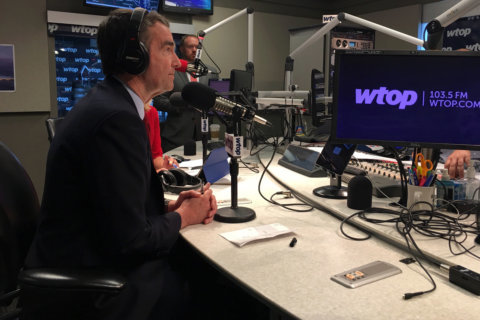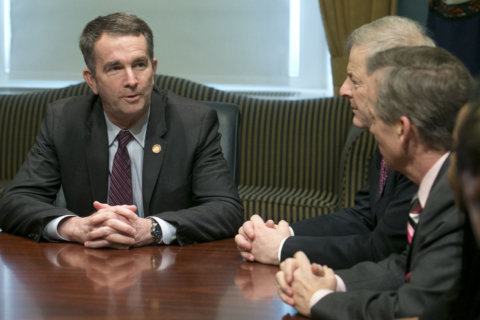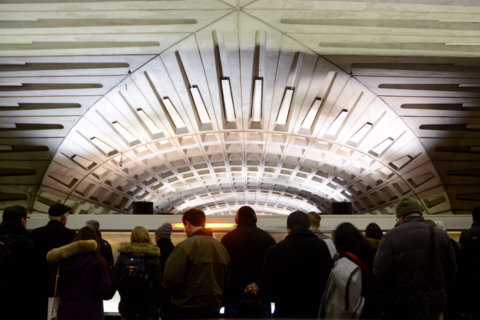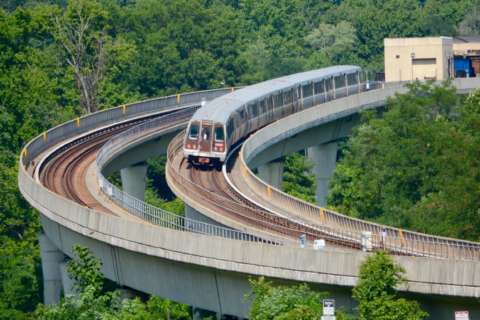WASHINGTON — A tax on hotel stays in Northern Virginia would rise from 2 to 3 percent and a real estate transfer tax would be raised to somewhat reduce the amount of money that would be taken from other Northern Virginia transportation projects to pay for Metro, under amendments proposed by Gov. Ralph Northam just before a Monday night deadline.
The hotel and real estate transfer tax increases proposed would only apply in jurisdictions served by Metro stations or with stations being built, including the cities of Fairfax and Falls Church.
The Northern Virginia real estate transfer tax, known as the grantor’s tax, would be raised from 15 cents per $100 of assessed value to 20 cents per $100. Half of the tax would go to the Northern Virginia Transportation Authority, and half would be designated for Metro. Today, all 15 cents go to regional transportation projects through the authority.
Local government leaders had expressed significant concern with the bill passed by the General Assembly March 10, since it would have removed a total of approximately $100 million per year from the Northern Virginia Transportation Authority, that funds transportation projects across the region.
Fairfax County Board of Supervisors Chairman Sharon Bulova lauded the changes.
“Yes, we lose some funding, but not nearly to the extent that the [House] bill would have had us lose regional dollars…so this is great news, this is good news,” Bulova said in an interview.
“We need to make sure that we’re helping to make sure that we’ve got votes lined up so that it indeed passes the General Assembly,” she said.
Under the amendments including the proposed increase in the grantor’s tax and an increase in the regional hotel tax, Northam’s office said the NVTA would see a drop of $30 million less than under the bill approved by the General Assembly March 10.
However, mitigating that drop, Metro just withdrew two significant funding applications to the authority for $2 million to study a new station at Rosslyn and $94.5 million in power system and automatic train control upgrades, WTOP has learned.
A letter from Metro’s chief financial officer to the authority’s executive director cited dedicated funding expected from Maryland, Virginia and the District as the reason for the withdrawal.
“We will advance the projects through our own capital funding program,” Dennis Anosike wrote in the letter obtained by WTOP. “WMATA appreciates the important role NVTA plays in funding projects which improve transportation across Northern Virginia.”
A key House Republican opposes the proposed tax increases, which are less than the level approved by the Senate this session.
The final bill eventually approved by the General Assembly March 10 wholly shifted existing funding, mainly from other Northern Virginia transportation projects, and did not include new taxes.
“After receiving nearly unanimous support in the House of Delegates (94-1), I am disappointed the Governor has chosen to amend HB1539 to include tax increases. I will insist that the final bill have no tax increases,” House Republican Caucus Chair Tim Hugo (Fairfax County) said in a statement to WTOP.
“Like Maryland’s Metro funding plan, my House Bill 1539 uses existing funds,” Hugo said.
Virginia’s General Assembly returns April 18 for the annual reconvened session commonly referred to as the “veto session” where the House and Senate take up any amendments offered by the governor and hold votes on whether to override any of the governor’s vetoes.
The Northam administration had been negotiating on the Metro bill amendments in hopes of coming up with something that will be approved.
“I don’t think that the governor would have done this if he didn’t think that the votes were there, or couldn’t be there, so we’ll do the best we can to make sure that that’s the case,” Bulova said.
Northam also included other amendments, including one to clarify that alternate Metro Board members would no longer be able to participate even in committee meetings if the jurisdiction’s primary members are present. Another would provide for an exception to the 3 percent cap on operating cost subsidy contributions for any costs related to Metro’s inspector general.
Northam also offered a series of technical and clarifying amendments to HB1539/SB856 that are not meant to create any substantive changes.
Northam had until Monday night to sign, veto or offer amendments to bills.








